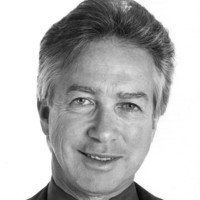Person
ContributeDon Dunstan was born in Suva, Fiji, on 21st September 1926, the son of Francis Vivian Dunstan, a manager for the Adelaide Steamship Company, and his wife Ida May (née Hill). Educated at Suva Grammar School, St. Peter’s College and the University of Adelaide, he entered the South Australian Parliament as the member for the marginal seat of Norwood in 1953 and from then until his death he was the pre-eminent social democrat in South Australia, with national recognition and influence.
Despite an early flirtation with the conservatives, he became a Fabian socialist at University, graduating in law. He married Gretel Ellis on 4th June 1949 and they had three children. The marriage was dissolved in 1974 and on 22nd December 1976 he married Adele Koh, who died of cancer two years later. Dunstan was appointed Q.C. in 1965.
Dunstan became impatient with the passive attitude of the Labor Opposition to the conservative government of Sir Thomas Playford. Believing that a full and equal franchise was basic to a democratic society, he was appalled by an electoral system that valued the votes of city constituents at a quarter of those of rural people. Although advised that electoral reform was not a galvanizing issue, he persisted in raising it. When Labor took office in 1965, after being in opposition for 32 years, Dunstan became attorney-general and, in 1967, premier. In 1968, despite winning 54% of the vote, he was defeated but had created such pressure for a fair electoral system that the principle of one-vote/one-value was finally adopted and the Legislative Council democratized. He was returned as premier in 1970 and won three subsequent elections before his retirement through ill-health in February 1979.
His electoral work and legal practice brought him into close contact with non-English-speaking migrants. Dunstan believed that ethnic groups should be able to become part of the community without having to reject or suppress their cultural heritage. He developed a policy of multiculturalism and created a ministry to support ethnic communities, an initiative taken up later by other state and federal governments. His vigorous denunciation of racism and the notorious ‘White Australia policy’ saw the national A.L.P. alter its policy on immigration and enter the modern era. He pioneered reforms in the management of Aboriginal affairs and repealed discriminatory laws. His 1966 Act to convey the management and jurisdiction of reserves to the Aboriginal community was the first substantial step towards land rights in Australia.
He was involved in urban planning issues, development of public housing, conservation and waste recycling, and created the first environment department of any Australian government. A State Insurance Commission was established and reforms promoted in workers’ health, safety and compensation, consumer protection and industrial democracy. His social policies included initiatives in education, community welfare and anti-discrimination on grounds of race, gender or sexual preference. He determinedly built up government policy on the arts, establishing a film corporation, theatre company, opera company, craft corporation and youth performing arts centre.
After retiring from politics he became director of tourism in Victoria, chairman of the Jam Factory Craft Workshops and national chairman of Community Aid Abroad. In 1979 he was made a Companion of the Order of Australia. His culinary expertise and his passion for good food saw him publish a highly successful cookbook and manage his own restaurant.
Don Dunstan died on 6th February 1999, survived by his children and his long-term companion Steven Cheng. He was cremated. The Dunstan Foundation was established to promote the causes with which he was associated throughout his life.
Media
Add mediaImages

Dunstan Collection, Flinders University Library, 75.0062. Not to be reproduced without permission.

Dunstan Collection, Flinders University Library, VTC.002. Not to be reproduced without permission.




Comments
CommentAdd new comment
Hi, I think your blog might be having browser compatibility issues. When I look at your blog site in Chrome, it looks fine but when opening in Internet Explorer, it has some overlapping. I just wanted to give you a quick heads up! Other then that, wonderful blog!
monture lunette
I haven't been able to replicate the problem Monture. If you send a screen shot to adelaidia@history.sa.gov.au and let us know which version of Internet Explorer you're using we can look into it.